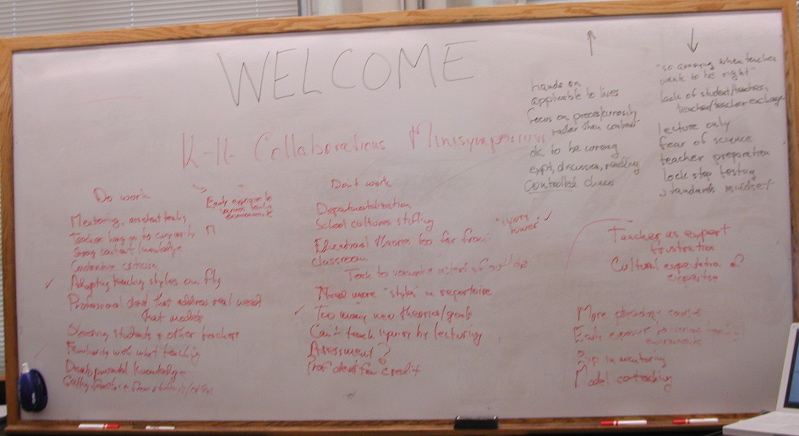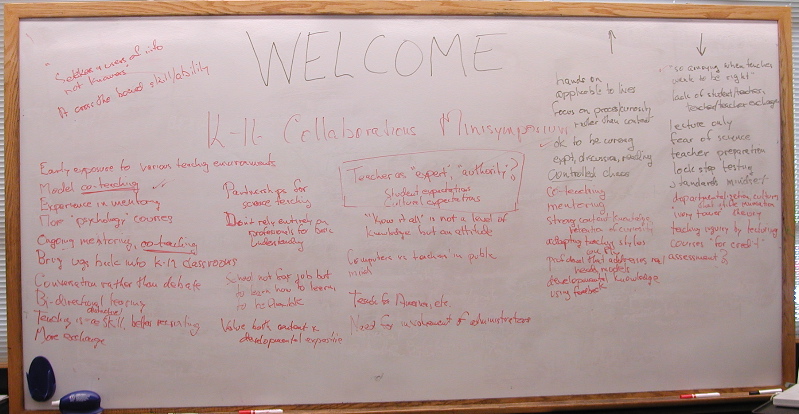
small group reports here, here, here, and here
hands-on lab
applicable to lives
web, listservs
process, not content
curiosity, not content
opens social mobility
interdisciplinary
ok to be wrong
experimentation with discussion/reading
exchange among students, with teacher
friendly textbook as reference
controlled chaos
learn as play
feedback from students
teacher exchange
lock step testing
focus on non-science
teacher instability, poor prep
fear of science
competitive culture
large classes
age inappropriate materials
standards mindset
trying to be right-lessons like this
pressure of next levels of system
"so annoying when the teacher wants to be right"
being scared to give feedback
lecture only
experimentation without conversation
science without labs/materials
no progression in science courses
lack of student/etc feedback
preparation down to pre-K

small group reports
mentoring, assistant teaching
teacher hang on to curiosity
strong content knowledge
constructive criticism
adapting teaching styles on the fly
professional development that address real needs, that models
observing students and other teachers
familiarity with what teaching
developmental knowledge
getting feedback from students/other
departmentalization
school cultures stifling
educational theories too far from classroom - "ivory tower"
teach to normative instead of outlier
need more "styles" in repertoire
too many new theories/goals
can't teach inquiry by lecturing
assessment?
professional development for credit
early exposure to various teaching environments
more psychology courses
experience in mentoring
model co-teaching
ongoing mentoring, co-teaching
bring undergrads back into k-12 classrooms
conversation rather than debate
bi-directional teaching
teaching is a distinctive skill, better recruiting
more exchange
partnerships for science teaching
don't rely entirely on professionals for basic understanding
school not for job but to learn how to learn to be flexible
"seekers and users of info not knowers"
teacher as "expert", authority?
student expectations
"know it all" is not a level of knowledge but an attitude
frustration
cultural expectation of expertise
computers vs teachers in public mind
Teach for America, etc
need for involvement of administrators
